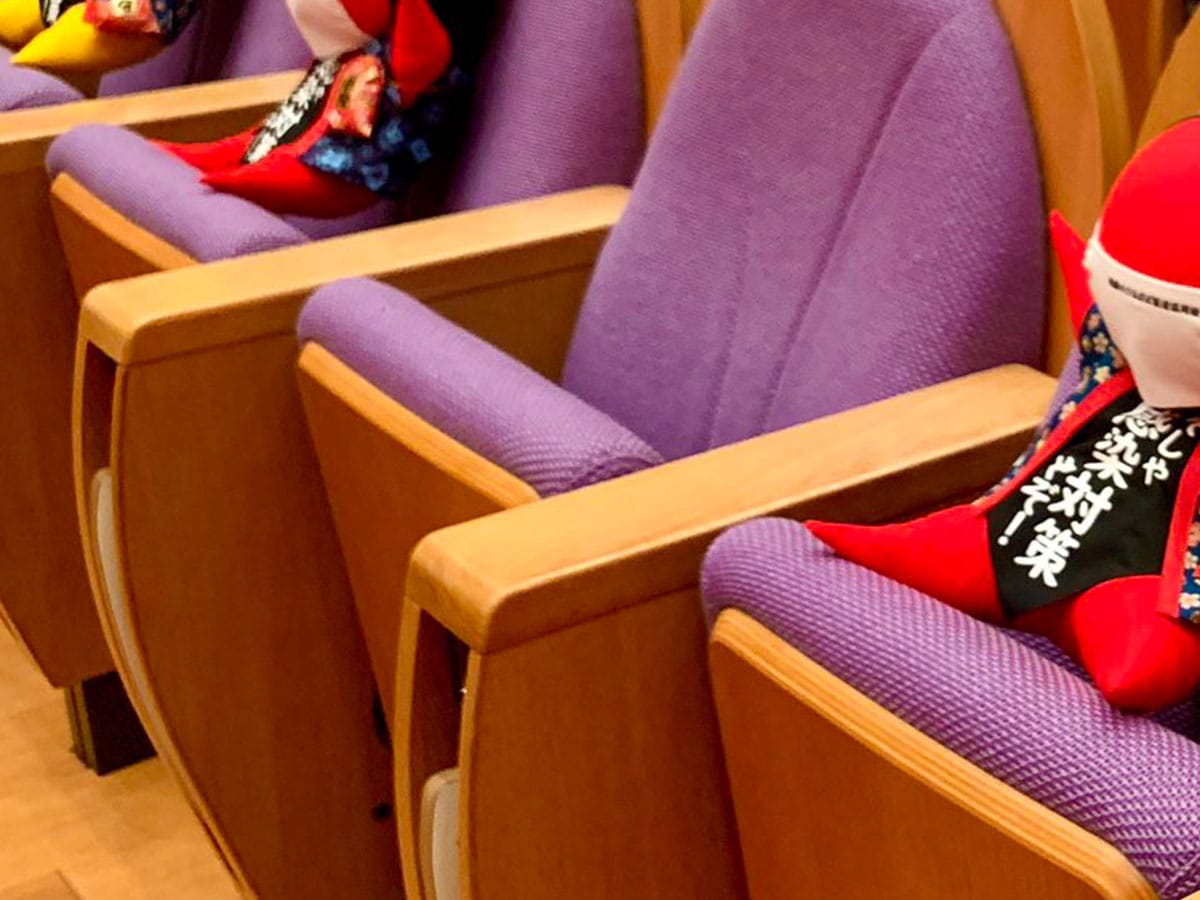
Source: Toyoshi Utsumi (@toyoshi29) - image reproduced with permission
Japanese concert hall uses local traditional dolls to implement social distance
- Tags:
- coronavirus / COVID-19 / Gifu Prefecture / Hida / reopening / Sarubobo / social distance / Takayama
Related Article
-
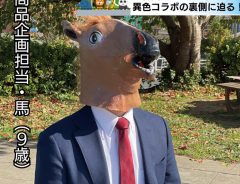
Hokkaido zoo and manga artists team up to protect animals during pandemic
-
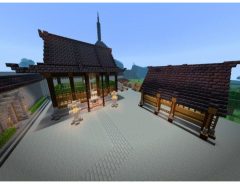
This school in Chiba is taking a cultural trip to Kansai using Minecraft!
-

IKEA Japan sends help to healthcare workers during pandemic
-
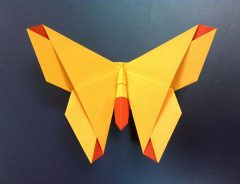
Origami zoom parties help Japanese arts-and-crafts aficionados get through COVID-19
-
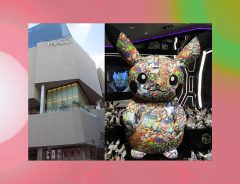
Shibuya Parco Reborn: Nintendo’s First Store in Japan, A Unique Pokemon Center and More
-

Avoid crowds & enjoy an izakaya mood at home with British typographer’s Japan-limited posters


Theaters and concert halls in Japan have been reopened since June, but with new measures in place to ensure social distance. For example, as reported by The Asahi Shimbun, Shimotakaido Cinema in Tokyo’s Setagaya Ward used signs covering every other seat to ensure that moviegoers would have sufficient distance between each other in the theater.
However, one resourceful concert hall in Gifu Prefecture decided that laminated signs simply attached over the seat was too boring.
As Twitter user Toyoshi Utsumi (@toyoshi29) revealed in a viral Tweet on October 17th when he visited the Hida Earth Wisdom Center's Hida Geijutsudo multipurpose hall, there were no signs waiting for him when he stepped into the hall.
Instead, this is the sight that met his eyes:
Reprodued with permission from Toyoshi Utsumi (@toyoshi29)
Reprodued with permission from Toyoshi Utsumi (@toyoshi29)
"To (help out with) social distancing at Hida (Earth Wisdom) Center, Sarubobo are filling in the empty seats!"
So, who are these Sarubobo enlisted by the hall to help keep people safe? They're a traditional amulet doll most famously associated with the town of Takayama in Gifu Prefecture. They have a variety of benefits, including protecting against evil, bad luck, and illness, ensuring domestic happiness and family prosperity, and promoting healthy childbirth.
The name Sarubobo さるぼぼ means baby monkey in the local Takayama dialect, which explains the red face. It's also a play on words since saru 去る means "leave," to express the hope that bad luck and illness will leave the owner and his/her home. The features of the doll are left blank to allow the users to project their own hopes and feelings.
A popular gift in the region, they come in the traditional smaller amulet size but are also made into larger dolls. The Hida Earth Wisdom Center, being a center of local culture, enlisted the help of these dolls made by the Hida Sarubobo Manufacturing Cooperative 飛騨のさるぼぼ製造協同組合 and dressed them up with special clothes printed with the text: "This is an infection prevention measure!" on the front. Of course, they're also wearing masks to reinforce the message. If you look closely at the masks, the name of the cooperative is printed at the bottom.
The cooperative sells Sarubobo dolls online and international orders are also available. To find out more, visit them here.